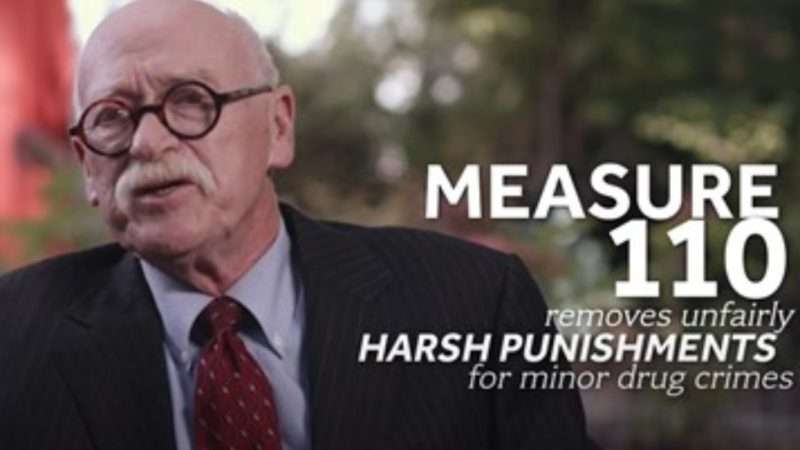
Oregon voters today approved a ballot initiative that decriminalizes noncommercial possession of all drugs, something no jurisdiction in the United States has ever done. With 70 percent of precincts reporting, 59 percent of voters favored Measure 110.
The initiative’s supporters included the Oregon Democratic Party, the American Civil Liberties Union, Human Rights Watch, the NAACP of Portland, state medical groups, and musician John Legend. Opponents included former Gov. John Kitzhaber (D), state legislators, two dozen district attorneys, and the Oregon Council for Behavioral Health, which argued that it did not provide enough resources for addiction treatment.
While marijuana is already legal in Oregon, Measure 110 eliminates criminal penalties for low-level possession of drugs that Oregon continues to ban, including heroin, cocaine, methamphetamine, and psychedelics such as LSD and psilocybin. The initiative, dubbed the Addiction Treatment and Recovery Act, reclassifies personal possession of controlled substances, currently a Class A misdemeanor punishable by up to a year in jail and a maximum fine of $6,250, as a Class E violation punishable by a $100 fine. The initiative’s supporters estimate that it will reduce drug possession arrests by more than 90 percent.
Drug users can avoid fines by completing a “health assessment” at an “addiction recovery center.” The initiative says the assessment should “prioritize the self-identified needs of the client” and refer him to appropriate services. Under Measure 110, the state will use marijuana tax revenue and savings on correctional costs to pay for expanded drug treatment.
“People suffering from addiction are more effectively treated with health care services than with criminal punishments,” the initiative says. “A health care approach includes a health assessment to figure out the needs of people who are suffering from addiction, and it includes connecting them to the services they need.”
Kitzhaber, a former E.R. physician, said he shared the concerns of Measure 110’s backers about “the disaster caused by the War on Drugs” but worried that the initiative would make it “more difficult to treat the underlying addiction that leads to drug use.” Decriminalizing drug possession, he said, means that courts “will no longer have the ability to offer people the choice to pursue treatment”—by which he meant they could no longer force people into treatment under the threat of criminal penalties.
The approach embodied in Measure 110 is a less authoritarian version of Portugal’s policy, which requires drug users to undergo “counseling” from Orwellian-sounding Dissuasion Committees and in some cases mandatory treatment. Portugal’s experience since it decriminalized drug possession in 2000 shows that addiction (as opposed to casual use) need not rise and may in fact decline when the government stops treating drug users like criminals. It also shows that many of the problems attributed to drug habits, such as skin infections, blood-borne diseases, social marginalization, and squalid living conditions, are caused or exacerbated by prohibition.
from Latest – Reason.com https://ift.tt/3oTRAef
via IFTTT